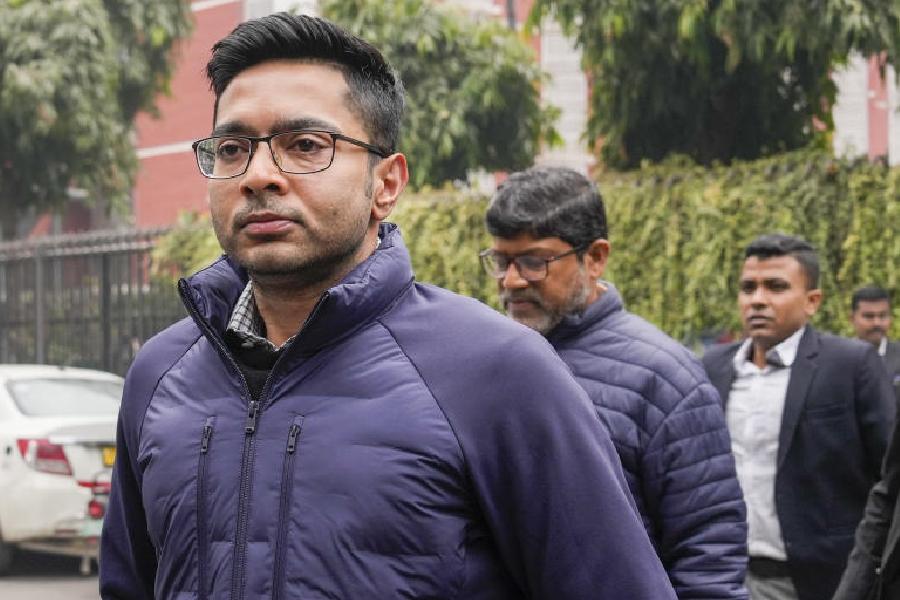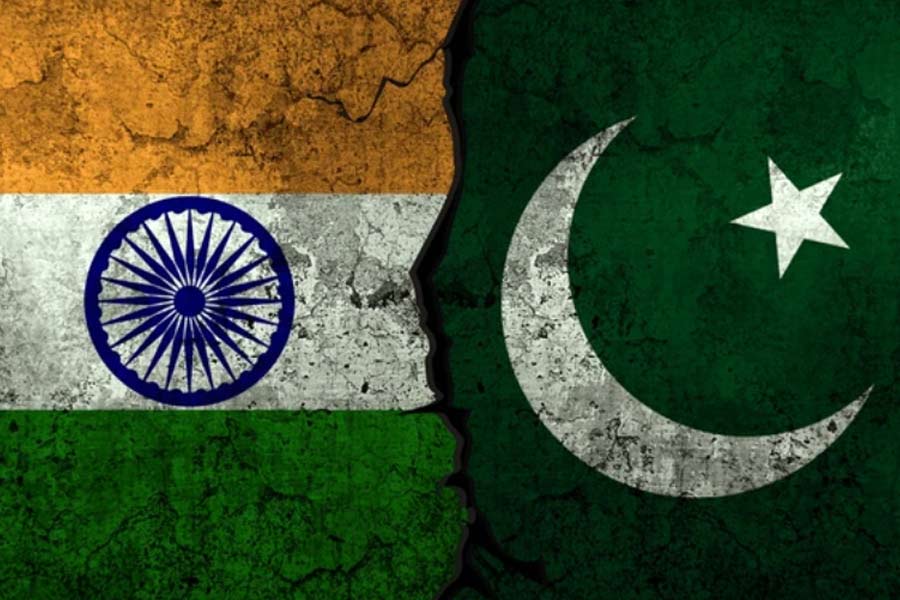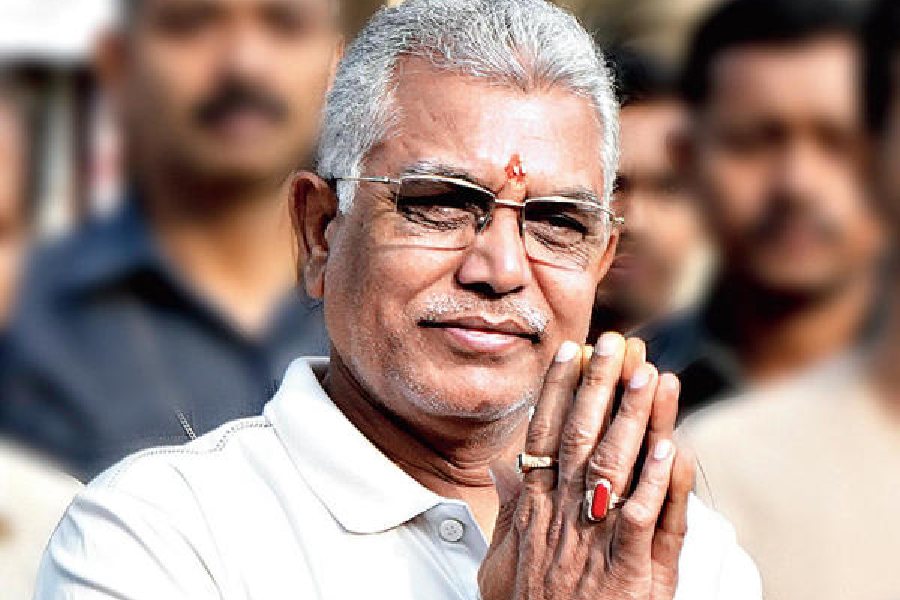
Beware of Dog, says the small plaque on the door in Hindi. But the smiling face that welcomes me in assures me that the pet Labrador is in another room and is not going to trouble us. Historian Romila Thapar, professor emerita at Jawaharlal Nehru University (JNU), Delhi, leads me to her living room, urging me to tell her a bit about myself.
Of course, I would rather hear Thapar speak. The 84-year-old academic, who is as much admired as she is attacked, has just released a new book On Nationalism, published by Aleph, which also features essays by jurist A.G. Noorani and journalist Sadanand Menon.
Nationalism, she writes in her essay, is about understanding one's society and finding one's identity as a member of that society. "It cannot be reduced merely to waving flags and shouting slogans and penalising people for not shouting slogans such as ' Bharat Mata ki jai'."
This - forcing people to raise slogans, and calling them anti-national if they don't - troubles her deeply. "It is amazing that people can force you to raise a slogan. I belong to a generation where, in order to prove your nationalism, you had to be committed to the kind of society you were building," she says.
Chatting with the professor of ancient history is like an invigorating lesson. She explains the origins of nationalism in Europe in the 18th and 19th centuries. She talks about the role of religion in shaping identities.
"Religion being the primary identity has gained strength over the years because it is an easy identity. It is easy to declare your religion and follow it, whereas with a national identity you have to work hard. Religion for many people, after all, is a psychological necessity."
In the last five decades, she has written extensively on the social and cultural history of early India and has authored almost two dozen books on the subject. She has also written school textbooks, which have often come under the scanner of the National Democratic Alliance (NDA) governments.
"The biggest opposition has primarily been to the kind of history I write. The ideology of the NDA is to rubbish history. But history is not fantasy; it is based on rational analysis," she says.
Thapar is not new to criticism. When she was appointed to the Library of Congress's Kluge Chair in 2003, an online petition urged the United States not to fund her, describing her as "anti-Hindu". But a large number of academicians stood by her, denouncing the attack. The Kluge Center, which attracts the best minds from across the world, paid little heed to the petition. In 2008, she was awarded the Kluge Prize (often called the American Nobel) for Lifetime Achievement in the field of history and was elected to the American Academy of Arts and Sciences in 2009.
One of the controversies about her was over Sanskrit. A section of people accused her of not knowing the language, which they deemed was essential for anyone studying or teaching ancient Indian history.
Thapar sets the record straight. "I began learning Sanskrit after I left school, out of curiosity about the language and because I was becoming interested in ancient history. This was useful as an introduction to the compulsory courses in Sanskrit that were required for my BA (honours) degree in ancient Indian history at London University. Unlike Indian universities where a BA in ancient Indian history does not require knowing Sanskrit, London University insists that clearing the Sanskrit exam is essential."
Today, Thapar is an honorary fellow at Lady Margaret Hall at the University of Oxford, a visiting professor at Cornell University, and holds honorary doctorates from institutions such as Brown University, University of Chicago, Edinburgh University, Oxford University, and the Universities of Calcutta and Hyderabad.
For someone who briefly worked in Kurukshetra University and then Delhi University, before setting out to establish JNU, the working of universities is a subject close to her heart. Not surprisingly, she is worried about the way universities have been drawn into turmoil in recent times.
"Social science teaches people how to think about society. Therefore, when you get political ideologues who wish to control a situation with their own ideology, they first attack the social sciences department of a university. And that is exactly what is happening today. The universities that have strong social sciences department are the institutions that have come under attack," she holds.
Thapar, who faced harassment during the Emergency, fears that the academic quality of universities is at a nadir. "Even then (during the Emergency) there was no question of wanting to destroy the university and reducing it to the lowest common denominator, which is what we fear is happening now," she rues. "The free expression with which we tackled ideas, [an atmosphere] where students had no hesitation in questioning ideas outside or inside classrooms is being threatened."
And some of that is the fault of the academicians. "Quality is lowered because we do not prevent the lowering. There is too much bureaucratic control over our institutions and this is a colonial heritage. But there aren't enough academics who stand up against bureaucratic control," she adds.
The debate on academics never misses to point out that there was a time when the Left ruled academia, and the Right had no role to play. What does she say about that?
Thapar believes that it's a myth that Left-wing intellectuals controlled institutions in the past, and that now it is the turn of the Right. "Right-wing intellectuals were always free to speak and they did speak. But why did it not make an impact? The point is that the Right-wing intellectuals will have to separate themselves from religious nationalism and that they seem unwilling to do. They have to define for themselves what a liberal Right-wing ideology is."
Labels such as "Leftist" and "Right-wing" annoy her. "It is simply laziness of thinking. You label people because that's the easiest way to put them in separate boxes," she argues. "Just take people for what they say and leave it at that," she adds.
The octogenarian - whose words are as crisp as her voice is mellifluous - is dressed in a blue salwar-kurta and a maroon dupatta, with black slip-ons. Her silver mop is loosely tied into a bun and the only visible pieces of jewellery are two chunky silver bands on her ring fingers. Her beautiful living room - she lives in a bungalow in a quiet residential area in south Delhi - is elegantly furnished, with carpets, sculptures and artefacts that underline the taste she acquired growing up in British cantonments.
Her father was a doctor in the British Army. While her two elder siblings - a brother and sister - went to boarding schools, she went with her parents wherever they were posted.
"My earliest memories are of living in the Thal Fort in the North West Frontier Province where the British regiment was posted in the 1930s. It was the border land between British India and Afghanistan. It was kind of surreal as we were living in a beautiful fort in a rugged landscape," she recalls.
When there was a shootout, her father was summoned and she, along with her mother, accompanied him as he attended patients in some fortress or the other. "These beautiful women dressed in black and with heavy jewellery would take us to the zenana and fuss over us. We could barely speak Pashto, but they made us feel at home. It is a memory I often return to with great pleasure."
She was barely 10 when she met Mahatma Gandhi in Pune. He was under house arrest, but a large crowd would gather every evening when he prayed. She went up to him for an autograph, and he asked her if she was wearing silk. "Don't wear silk, wear khadi," he advised her. Young Romila decided she wouldn't wear silk, and had to throw a tantrum to persuade her parents.
When India gained Independence, she was 15 and cocooned in a hostel in Pune, unaware of the developments across the country. "The nuns suddenly stopped newspapers coming in from the first week of August. It was only in September when I went home to Delhi for my vacation that I discovered what had happened. I was very upset seeing my extended family come from Lahore not knowing what to do," she recollects.
Thapar graduated from Panjab University and decided to join the University of London for higher studies. But her father made it clear that he could either afford her dowry or pay for her degree. For the 20-something young girl with her heart set on history, it wasn't a tough choice to make. To London, she went. And, incidentally, she never married.
When not immersed in academic journals, she indulges in fiction which allows her to "sleep well" at night. Currently, she is reading the autobiography of Austrian writer-poet Stefan Zweig, who was oppressed by the Nazis and wrote eloquently about life in central Europe in the 1930s.
The thought that disturbs her sleep is the silencing of dissent. "We have had three assassinations of rational thinkers. Then they tried to shut up writers like Perumal Murugan. I find that very threatening. Those who are opposed to reasoned thinking try to terrorise those who don't agree with them by silencing them."
Thapar, clearly, is not going to be silenced. She promises to lead a busy life, writing books, delivering lectures and, of course, speaking her mind. "I may just drop dead if I stop working," she declares.










